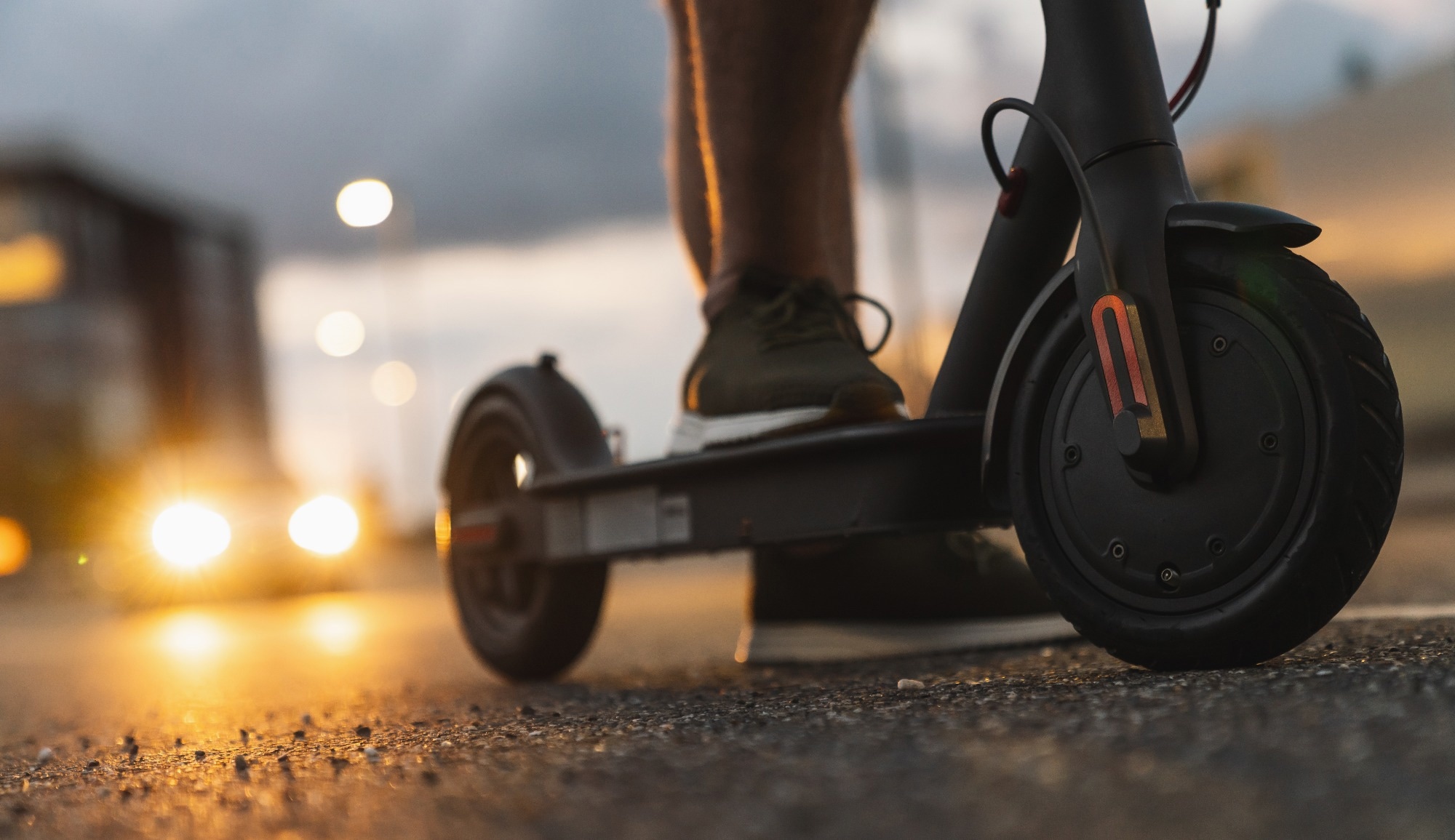Motor vehicles are among the leading causes of death by injury, with the World Health Organization (WHO) reporting that road traffic accidents comprised over a fifth of all fatal injuries in 2015. Across the world, over 30,000 people suffer serious injuries from such accidents every day.
Electric scooters (e-scooters) have been linked to an increased risk of harm. A new research paper published in the journal JAMA Network Open looks at the impact of nighttime speed limits on injury risk related to e-scooters.
 Study: Association of Nighttime Speed Limits and Electric Scooter–Related Injuries. Image Credit: r.classen / Shutterstock
Study: Association of Nighttime Speed Limits and Electric Scooter–Related Injuries. Image Credit: r.classen / Shutterstock
Introduction
Since their introduction in many countries, e-scooters have been associated with high injury statistics, especially to the head and face. In particular, nighttime driving of e-scooters, or driving under the influence of alcohol or illegal substances, has been found to be associated with injury risk in a substantial proportion of cases.
In attempts to reduce the toll from road traffic accidents, the safe system approach has been advocated. This includes a recognition of the potential for human error as a cause of accidents and factors in the human susceptibility to serious injury in such situations. Adaptations designed into the driving system to account for these risk factors include safe roads, safe speeds, safe vehicles, and safe curbs, among others.
Increases in mean vehicle speeds are linked directly to higher odds of crashes and serious crash-related injuries. For instance, at 1% higher speeds, the risk of a fatal crash goes up 4%. Serious crashes become 3% more probable.
People hit by a car while walking on the road are 4.5 times more likely to die if the car is moving at 65 kph vs. 50 kph. If two cars moving at 65 kph swipe each other sidewise, the risk that the occupants will die is 85%.
User databases have not been exploited to arrive at the incidence of e-scooter injuries in prior studies.
In accordance with the safe system approach, nighttime driving speed limits have been imposed as a potential method of reducing the frequency of such injuries among e-scooter riders. However, the analysis of the effectiveness of such measures is not based on actual user data. The current study aimed to fill in some of these research gaps.
What did the study show?
The study included all patients admitted to the emergency department of a Finnish hospital during the period between April 24, 2019, and September 30, 2022. This hospital captures all emergency trauma cases in a population of 550,000.
In 2022, e-scooter companies set electronic limits on scooter speed at 15 km/hour between 12 am and 6 am. Nighttime e-scooter-related injuries in the summer of 2022, between June 1 and August 31, were therefore compared to those of other years to assess the impact of speed limits on such injuries.
There were 3.6 million e-scooter rides covering 7.3 million km. Over 650 patients were identified with e-scooter injuries during the summers of the years 2019-2022. The average incidence of injury was 18.4 per 100,000 rides, with 9 injuries per 100,000 km of driving.
The incidence of injury was lower in 2019 and 2021-22, at ~17 per 100,000 rides, increasing. It was highest in 2020, at 25 per 100,000 rides.
Rides became shorter over the years, doubling the mean incidence of injury per 100,000 km, from 5.6 to 10.4, from 2019 to 2022.
What are the implications?
This is the first study to explore the associations between nighttime speed restrictions and e-scooter-related injuries. “The results from our study can be used as reference values to evaluate the efficacy of new interventions.”
The scientists found, from the user database of e-scooter riders, that there was no reduction in the incidence of injury with a lowering of nighttime speed. Other measures will require to be worked out to reduce injuries linked to e-scooters.
Source:
Journal reference: